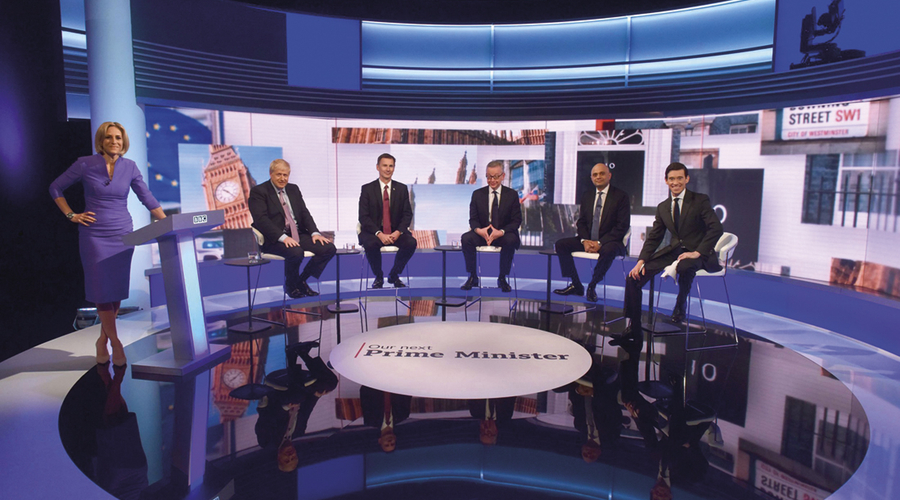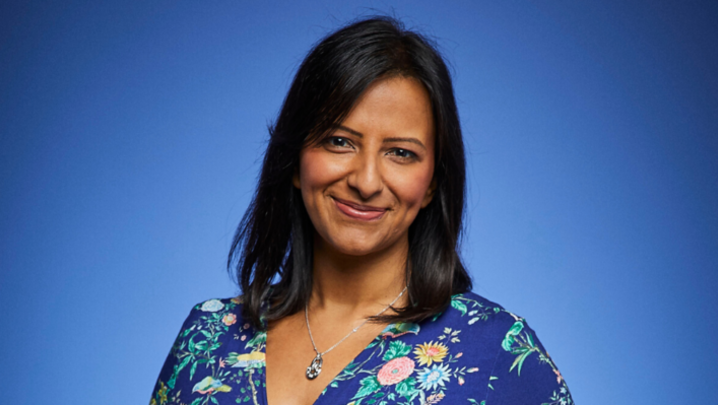Stewart Purvis argues that our fragmented politics is challenging news broadcasters, especially the BBC, as never before
In May 2018, the top two UK parties, as measured in opinion polls and real votes cast in elections, were Labour and the Conservatives. A year later, they had been displaced by the Brexit Party and the Liberal Democrats.
One man’s journey during just three of those 12 months helps to illustrate this wacky new world of UK politics. In March 2019, he left one party to help create another, which started with one name, changed to a different one and then changed back. He then joined a third party, saying that he should probably have gone with it in the first place.
You probably have run out of sympathy for Chuka Umunna and his voyage from Labour to the Liberal Democrats via the Independent Group aka Change UK. But spare a thought for broadcasters trying to observe the regulatory requirement for “due impartiality” in these unusual times.
The Ofcom “Digest of evidence of past electoral support and current support”, sent to broadcasters before the European elections to help them make their judgements, contained no mention of the eventual winner, the Brexit Party, which had only just been created.
One respected political observer, Rafael Behr of the Guardian, says the Brexit referendum has turned out to be “a meltdown in the reactor core at the heart of British politics”. Some of the fallout from the continuing fragmentation of British politics has landed on the BBC.
"Dear BBC, you must get the detail right’"
“If BBC News continues to distort and withhold information from viewers there will be trouble,” tweeted Telegraph columnist Allison Pearson. “Oh my... has it come to this?’ replied BBC correspondent Rory Cellan-Jones. A BBC News executive accused two predecessors who were reviewing the current output of “making a few bob to supplement their pensions as armchair generals”.
The Observer asked: “Is BBC News broken?” The first of its contributors began: “Our national broadcaster has been defeated by Brexit.” Then came the Our Next Prime Minister debate, summed up by the Guardian’s Jonathan Freedland as “a painful hour delivered via a format that featured too much crosstalk and too little cross-examination”.
How exactly did it “come to this” and what’s to be done?
It was as far back as a decade and a half ago that the BBC got its first warning that a UK referendum on the EU would mean trouble for the corporation.
In 2005, an independent panel of outside experts, chaired by Lord Wilson of Dinton, the former cabinet secretary Richard Wilson, was appointed by the thengovernors. The panel predicted that “a referendum period makes unconventional demands on broadcasters in that balance consists of giving equal treatment to the Yes and No campaigns, rather than to government and opposition spokespeople”.
The experts forecast that the referendum would “free voters from party affiliations, introduce non-politicians to the political arena and divide the loyalty of parliamentarians”.
The particular referendum they were referring to never actually happened. As it turned out, Britain didn’t need to vote in 2006 on a constitution for Europe because electors in France and the Netherlands stopped the proposed treaty in its tracks.
But when, in 2016, the UK finally did get the chance to vote on Europe the panel’s 2005 prediction that a referendum would “free voters from party affiliations” was immediately validated. Voters now seem to find it easier to identify as leavers or remainers rather than Conservative or Labour.
The impact of the BBC’s 2016 referendum coverage on its reputation was significant. As part of an action plan after the critical report in 2005, the coverage of Europe had been improved by the appointment of a Europe editor, currently the award-winning Katya Adler. The unconscious Europhile mindset had been replaced by a commitment to “deliver to audiences impartial and independent reporting of the campaign, providing them with fair coverage and rigorous scrutiny of the policies and campaigns of all relevant parties and campaign groups”.
Given their past distrust of the BBC’s coverage, the Leave campaign was always going to be cynical and sceptical about this conversion – and remains so to this day. What was more surprising and significant was that the Remain campaigners also turned against the BBC, particularly once they knew they had lost the referendum.
Craig Oliver, who, as David Cameron’s director of communications, oversaw the Remain campaign, said the problem was that the BBC searched for “the perfect symmetry in coverage of Leave and Remain” at the expense of challenging protagonists on the basis of facts.
Others on his side constantly asked why the BBC was not challenging more often the claim that £350m would be released for the NHS. The BBC’s said it had challenged it, but it didn’t have an iconic moment such as Tom Bradby’s ITV confrontation with Boris Johnson in the back of the very bus that bore the claim.
The complainants no longer seemed to trust the corporation. “False equivalence” became their battle cry when leavers were offered the chance to rebut what remainers saw as accepted facts and consensus opinions.
Anti-Brexit campaigner Gina Miller now believes that “it seems to have got much worse since the EU referendum, this idea at the BBC that you have got to give equal weight to both sides, even if one side is telling a lie”.
Professor Steven Barnett, a long-time supporter of the BBC, was so unhappy with some of its analysis of the Euro elections that he recently tweeted: “Dear BBC News, this is precisely the kind of detail that your reporters are consistently getting wrong and you must get right.”
The BBC’s current view, as stressed in its recent European election guidelines, is that “the election needs to be seen both through the prism of Brexit and through the distinctions of party”.
The corporation has found it difficult to reflect or refract all the political colours of the UK in 2019, and its chief political advisor, Ric Bailey, says there is a “tension between the binary nature of issues such as Brexit and the fragmentation of party political loyalties”.
"‘Broadcasters have more freedom than ever [but] they don’t always take it’"
At the start of my 50 years in broadcasting, the election-time rules were just plain wrong. A committee decided how many election broadcasts each party should have and that became the formula for news coverage. Parties would ring up after each bulletin and argue about every extra 30 seconds they claimed the other side had got. In 1992, I announced that ITN would “throw away the stop watch” and decide the news coverage on news values alone.
Others followed but broadcasters found it difficult to break away from the equation “‘equal time equals balance equals due impartiality”. It doesn’t and shouldn’t. The old rules have fallen away and broadcasters have more freedom than ever to interpret how to achieve due impartiality during and outside elections. They don’t always take it.
At the time of the 2016 referendum the BBC insisted that “news judgements continue to drive editorial decision-making in news-based programmes”. The BBC – and, indeed, all broadcasters – have to keep asserting the primacy of this doctrine over a time-based formula and be bolder in defending it.

The head of BBC newsgathering, Jonathan Munro, told the Radio 4 programme Feedback last month that the BBC was now reviewing its approach to election coverage, particularly in the light of the increased use of social media. He called it “an evolution rather than a moment of change”.
There are bound to be different views inside the BBC about the speed of that evolution, but innovations such as Reality Check and Brexitcast show that there are new ways in which audiences can check facts and taste the many and varied flavours of UK politics. Broadcasters need to seize these or face more hostility as Brexit continues to dominate the news agenda.
Stewart Purvis was formerly CEO of ITN and an Ofcom content regulator. He is a non-executive director of Channel 4 and writes here in a personal capacity.





